
-
Find the right food for your petTake this quiz to see which food may be the best for your furry friend.Find the right food for your petTake this quiz to see which food may be the best for your furry friend.Featured products
 Hypoallergenic Small & Mini Adult Dog Food
Hypoallergenic Small & Mini Adult Dog FoodHILL'S SCIENCE PLAN Hypoallergenic Small&Mini Adult dog food with Salmon is complete pet food for adult small dogs 1–6 years old. It's formulated for dogs with delicate skin and stomach, with limited high quality novel protein sources & no grain.
Shop Now Perfect Weight Small & Mini Adult Dog Food
Perfect Weight Small & Mini Adult Dog FoodHill's Science Plan Adult Small & Mini Dog Food with Turkey is a complete premium pet food for adult small dogs from 1 year old that are prone to weight gain or slightly overweight. This deliciously smooth mousse is formulated to deliver the appropriate amount of energy to support weight maintenance in adult dogs.
Shop Now Perfect Digestion Small & Mini Adult Dog Food
Perfect Digestion Small & Mini Adult Dog FoodHill's Science Plan Perfect Digestion Small & Mini Adult Dog Food with Turkey is a complete premium pet food for small breed adult dogs aged 1–6 years. This deliciously smooth mousse is precisely balanced to deliver the appropriate amount of energy and to support digestive health in adult, small breed dogs.
Shop NowFeatured products Oral Care Adult Cat Food
Oral Care Adult Cat FoodHill's Science Plan Oral Care Adult Cat Food with Chicken contains clinically proven kibble technology to reduce plaque & tartar build up.
Shop Now Sterilised Mature Adult Cat Food
Sterilised Mature Adult Cat FoodHill's Science Plan Sterilised Cat Mature Adult Cat Food with Chicken is specially formulated with ActivBiome+ Multi-Benefit Technology. It is a precisely balanced nutrition tailored to meet the needs of mature adult sterilised cats, ages 7+, and to promote graceful ageing.
Shop Now Urinary Health Adult Cat Food with Chicken
Urinary Health Adult Cat Food with ChickenHill's Science Plan Urinary Health Adult Cat Food with Chicken supports the health of the whole urinary system. Suitable for sterilised cats.
Shop Now -
Dog
- Dog Tips & Articles
-
Health Category
- Weight
- Food & Environmental Sensitivities
- Urinary
- Digestive
- Joint
- Kidney
-
Life Stage
- Puppy Nutrition
- Adult Nutrition
- Senior Nutrition
Cat- Cat Tips & Articles
-
Health Category
- Weight
- Skin & Food Sensitivities
- Urinary
- Digestive
- Kidney
-
Life Stage
- Kitten Nutrition
- Adult Nutrition
Featured articles Develop your gut instinct | Hill's Pet
Develop your gut instinct | Hill's PetDigestive disorders can affect any part of the digestive system, from the stomach, small intestine and through to the large intestine.
Read More Virtual Vet Visits: What You Need to Know
Virtual Vet Visits: What You Need to KnowLearn the ins and outs of a televet appointment before you talk to a vet online.
Read More Tips For Mixing Wet And Dry Pet Food
Tips For Mixing Wet And Dry Pet FoodDiscover tips for mixing wet and dry pet food to ensure balanced nutrition and variety for your pet. For comprehensive feeding advice, visit Hill's Pet UK.
Read More -


You might have seen or heard countless stories of cats loving fish, but as far as cats eating tuna goes, is it really a good idea? And can cats eat tuna that's made for human consumption?
Here's why you may want to reconsider sharing your favourite canned tuna with your feline friend.
Can Cats Eat Tuna?
The simple answer is that cats are attracted to tuna. They love the powerful smell and the robust flavour of this fish, and a spoonful of tuna has been known to make the medicine go down easily.
However, though not on the list of toxic foods for cats, tuna that's meant for people can cause health issues for cats. While a single bite may not do any harm, it's best to take tuna out of their bowl entirely.
How Tuna Can Affect Cat Nutrition
A well-balanced meal plan for cats includes protein, essential fatty acids, vitamins, minerals, and other nutrients. When your cat eats too little or too much of certain nutrients, health complications can arise.
Tuna on its own is not nutritionally balanced. For example, tuna has too much unsaturated fat and is not supplemented with Vitamin E or other antioxidants. Therefore, tuna should not be fed as your cat's primary source of nutrition.
If tuna is part of your cat's meal plan and you notice them acting out of sorts, consider taking them into your veterinarian for a wellness visit — it's always a good idea to get a baseline reading to ensure nothing serious is going on.


Tasty Tips
Why Cats Eating Tuna May Gain Weight
Most indoor cats aren't very active and don't require a lot of calories — meaning weight gain can easily creep up. According to recommendations set forth by the World Small Animal Veterinary Association, a cat that weighs 5 kg should consume 290 calories per day.

When human foods are converted to cat calories, it is easy to see that foods intended for humans have far too many calories for our feline companions. A small amount of canned tuna in water can contain almost 100 calories, which is more than a third of the recommended daily caloric intake for many cats.
In turn, eating too much tuna can cause your cat to gain significant weight, especially when fed in addition to their normal cat food. Just like in humans, obesity in cats contributes to health concerns such as diabetes, bladder problems, arthritis, and cancer, according to the PDSA.
Monitoring food consumption is very important when managing your cat's health. As more manufacturers include calorie content information on pet food labels, it is easier to judge how many calories you are feeding your pet per day. This is great news for cat parents, as more information can lead to more informed decisions about food, and ultimately better health for their cat.
Not All Cats Can Stomach Tuna
Cats can also be allergic to fish. Fish is one of the most common causes of food allergies and food intolerance in cats. Common signs of an allergic reaction include itching, hair loss as well as red, inflamed skin. Cats with food allergies may also vomit and experience diarrhoea, gas and a loss of appetite if they encounter an ingredient they're sensitive to. If you notice any of these symptoms, call your veterinarian right away to determine the causes and create a treatment plan.
Tuna Is High in Mercury
Tuna is high in mercury, a toxic metal. Frequent consumption of tuna may also lead to mercury poisoning, explains Cailin Heinze, a veterinary nutritionist at the Cummings School of Veterinary Medicine at Tufts University. Symptoms of mercury poisoning include dizziness and loss of coordination and balance. Pet parents should keep albacore tuna, in particular, away from cats because it "is from a larger species of tuna with mercury levels almost three times higher (than chunk-light)", says Heinze.
So, can cats eat tuna? Tuna is not nutritionally balanced and should not be fed as a large part of your cat's meal plan. Even giving canned tuna as a treat can lead to health issues, especially if it is given in large amounts or frequently. To ensure your feline friend is getting the balanced nutrition they need without extra calories or toxic metals, choose a healthy cat food that uses tuna in a way that still meets their nutritional needs and satisfies their taste buds.


Christine O'Brien is a writer, mom, and long-time cat parent whose two Russian Blues rule the house. Her work also appears in Care.com, What to Expect, and Fit Pregnancy, where she writes about pets, pregnancy, and family life. Find and follow her on Instagram and Twitter @brovelliobrien.
Related products

Hill's Science Plan Urinary Health Adult Cat Food with Chicken supports the health of the whole urinary system. Suitable for sterilised cats.

Hill's Science Plan Sterilised Cat Mature Adult Cat Food with Chicken is specially formulated with ActivBiome+ Multi-Benefit Technology. It is a precisely balanced nutrition tailored to meet the needs of mature adult sterilised cats, ages 7+, and to promote graceful ageing.
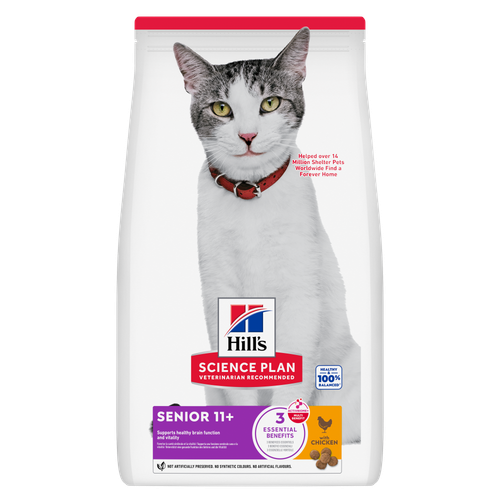
Hill's Science Plan Senior Cat Food with Chicken is a complete pet food, specially formulated with ActivBiome+ Multi-Benefit Technology.
This food supports healthy aging during the golden years. Contains a special ingredient blend to help keep older cats agile, more alert & interactive.

Hill's Science Plan Oral Care Adult Cat Food with Chicken contains clinically proven kibble technology to reduce plaque & tartar build up.
Related articles
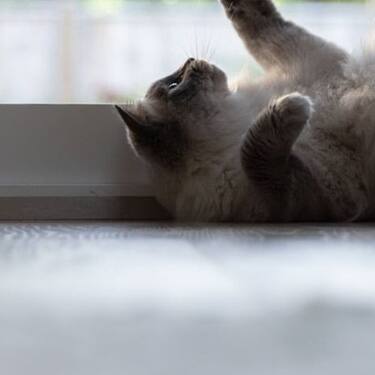
Feeding time can be a wonderful bonding opportunity for you and your cat. Find out how to make the most of it and create a healthy habit with HIll's Pet UK.
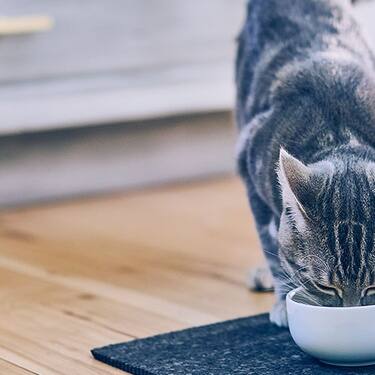
Good nutrition is about the right balance of nutrients. Learn more about health issues when feeding a cat food that has an improper nutritional balance from your friends at Hills Pet Nutrition.
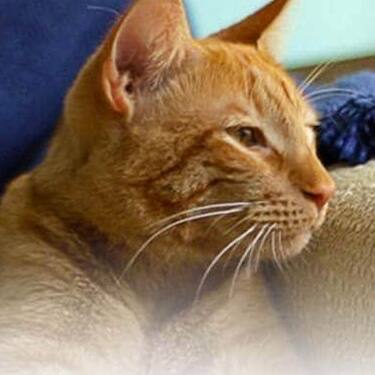
Find the right Hill
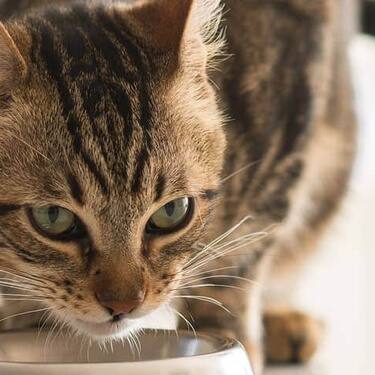
Discover what you can do to spot and support a sensitive cat stomach. See what routines and food you can implement to help your cat be happy and healthy.

Put your cat on a diet without them knowing
Our low calorie formula helps you control your cat's weight. It's packed with high-quality protein for building lean muscles, and made with purposeful ingredients for a flavourful, nutritious meal. Clinically proven antioxidants, Vitamin C+E, help promote a healthy immune system.
Put your cat on a diet without them knowing
Our low calorie formula helps you control your cat's weight. It's packed with high-quality protein for building lean muscles, and made with purposeful ingredients for a flavourful, nutritious meal. Clinically proven antioxidants, Vitamin C+E, help promote a healthy immune system.

